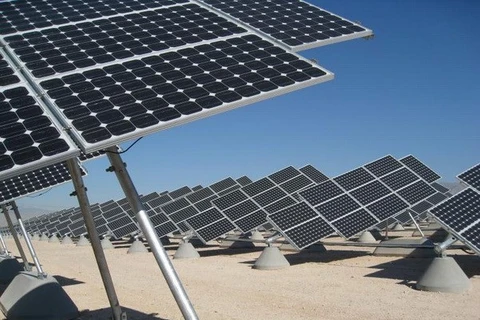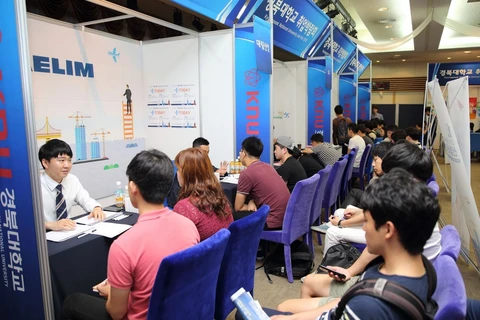Can Tho (VNA) - The Vietnam-Republic of Korea (RoK) free trade agreement (VKFTA) is billed as a significant legal framework for enterprises from Vietnam and the RoK to expedite investment and cooperation while expanding production.
Bui Huy Son, Head of the Trade Promotion Agency under the Ministry of Industry and Trade, made the statement at a conference in the Mekong Delta city of Can Tho on December 4.
At the conference, participants were briefed about the VKFTA’s basic contents, RoK investment trends and the deal’s impacts on RoK enterprises operating in Vietnam.
Accordingly, Vietnam will open its doors to RoK enterprises in urban planning, structure and rental equipment services. Meanwhile, Vietnamese businesses will be able to increase their presence in the RoK in the fields of legal service, railway maintenance and repair service, natural science research and development, among others.
Regarding commodities, the RoK will eliminate and reduce tariffs on many goods imported from Vietnam such as shrimp, crab, fish, tropical fruit, garment and textiles, timber and mechanical products, which are strengths of enterprises in the Mekong Delta region.
In addition, Vietnamese garlic, ginger, honey and sweet potato will have a chance to enter the RoK market.
According to Kim Chan Young, an investment consultant from Korea Trade Investment Promotion Agency, RoK is now the leading investor in Vietnam with 4,459 projects worth 39 billion USD. He said that most of the investments are shifting from electrics, electronics and spare parts into textile and garments. Many RoK businesses are also involved in wholesale and retail, hotel and franchising.
The VKFTA comprises 17 chapters, 208 articles, 15 appendices and one agreement on regulation implementation. It covers trade in goods, trade in services, investment, intellectual property, sanitary and phytosanitary measures, rules of origin, customs facilitation, trade remedies, competition, economic cooperation, and institutional and legal matters.
Trade between the countries has thrived in recent years, shooting up from 500 million USD in 1992 to over 26 billion USD in 2014 – an annual increase of about 20 percent.-VNA

























